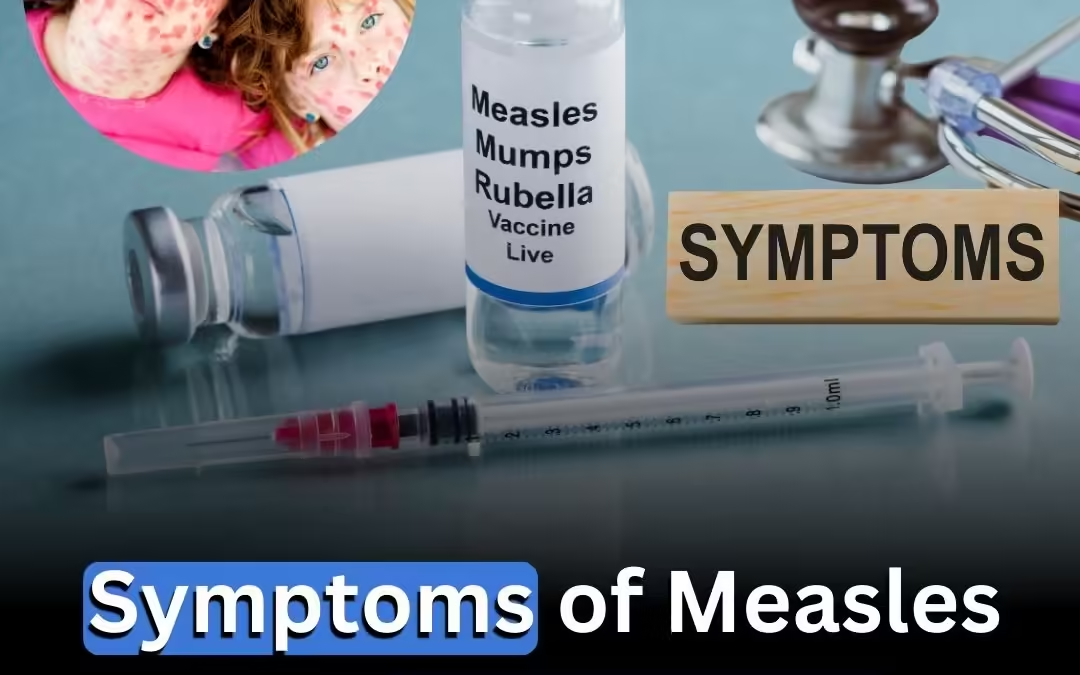Symptoms of Measles, also known as rubeola, is a highly contagious viral infection primarily affecting the respiratory system. Recognizing the symptoms can help identify and manage the condition. Here are the key symptoms associated with measles:
Fever:
Measles usually begins with a high fever, often reaching 101°F (38.3°C) or higher. This fever is one of the initial signs of the infection.
Rash:
A distinctive red, blotchy rash is a classic symptom of measles. It typically starts on the face and then spreads to the rest of the body, including the trunk, arms, and legs. The rash usually appears a few days after the onset of fever.
Respiratory symptoms:
Measles can cause respiratory problems, such as a persistent cough, runny nose, and sneezing. These symptoms can contribute to the spread of the virus.
Sore throat:
Many individuals with measles experience a sore throat, which can be accompanied by pain and discomfort while swallowing.
Conjunctivitis:
Measles can cause inflammation of the eyes, leading to redness, irritation, and excessive tearing. Light sensitivity (photophobia) may also occur.
Koplik’s spots:
These small, whitish spots with bluish centers may appear inside the mouth on the inner lining of the cheek. They are characteristic of measles and often appear a couple of days before the rash develops.
General symptoms:
Measles can cause a sense of malaise and fatigue, with individuals feeling generally unwell and lacking energy. Muscle pain and body aches are also common.
- In some cases, measles can lead to complications, particularly in vulnerable populations. These complications may include:
Ear infections:
Measles can cause ear infections, resulting in earache, fluid buildup, and temporary hearing loss.
Pneumonia:
The infection can lead to pneumonia, which can cause severe respiratory symptoms such as coughing, chest pain, and difficulty breathing.
Encephalitis:
Although rare, measles can cause inflammation of the brain (encephalitis), leading to symptoms such as severe headache, high fever, neck stiffness, convulsions, and even coma. Encephalitis can have long-term effects on neurological function.
Pregnant women:
Symptoms of Measles during pregnancy can pose risks to both the mother and the unborn baby, including premature labor, low birth weight, and potential harm to the baby’s development.
If you suspect measles or have been in contact with an infected individual, it’s crucial to seek medical attention. Your healthcare provider will evaluate your symptoms, conduct diagnostic tests if necessary, and provide appropriate guidance and treatment options.
It’s important to remember that the severity of symptoms can vary from person to person. If you suspect measles or come into contact with an infected person, it is crucial to seek medical advice for proper diagnosis and treatment. Measles can lead to serious complications, particularly in young children and individuals with weakened immune systems. Vaccination is highly effective in preventing measles, and it is recommended for everyone who is eligible, providing long-term protection against the disease.

